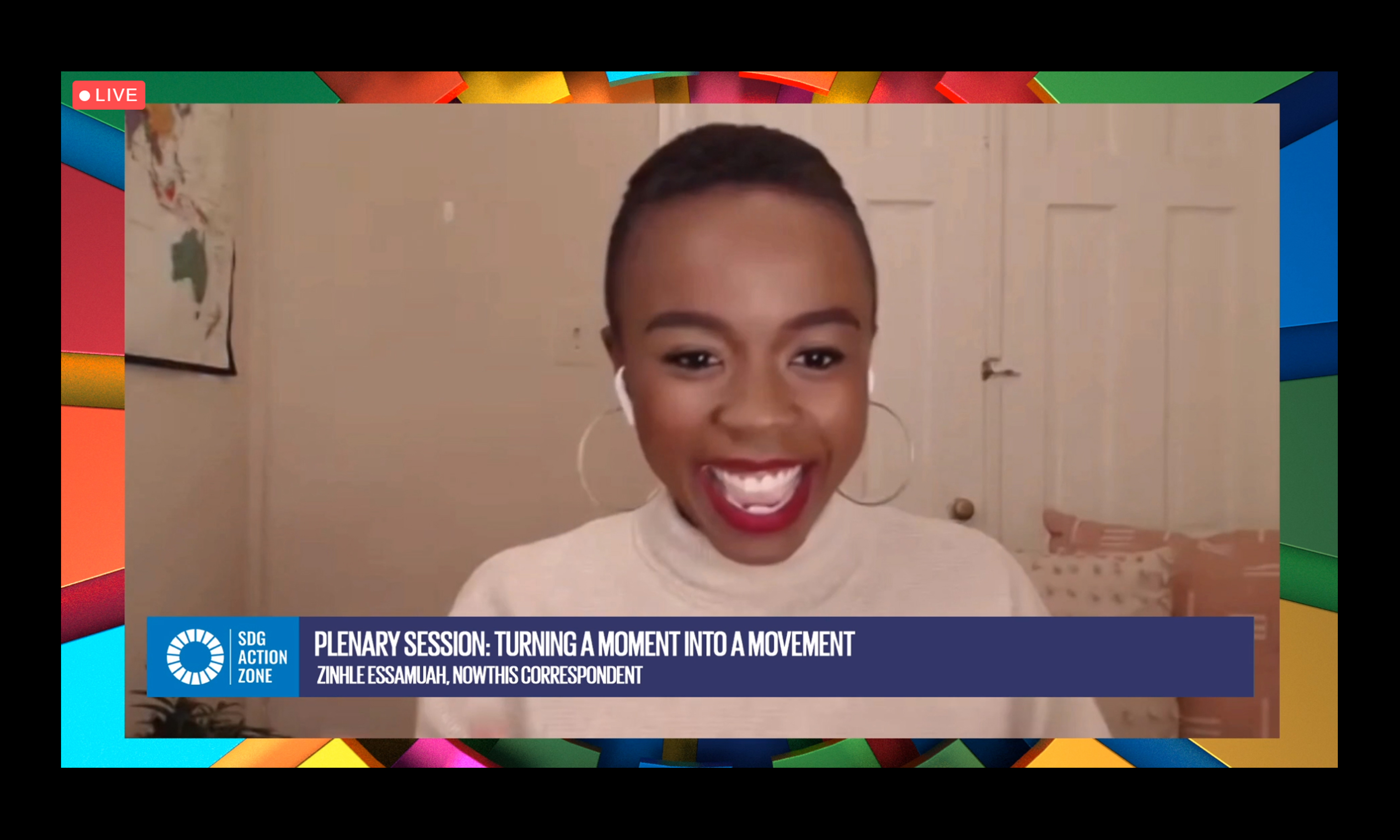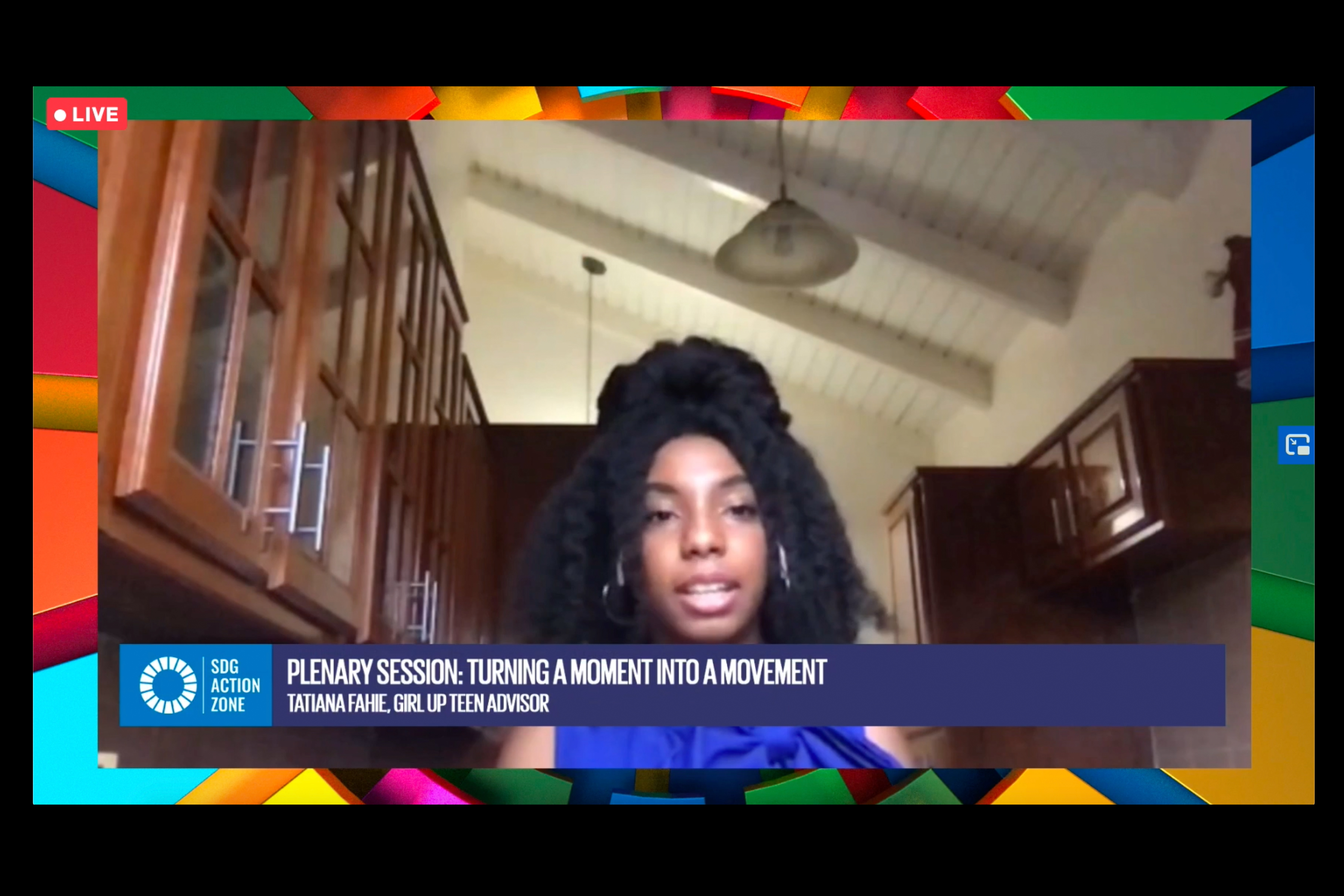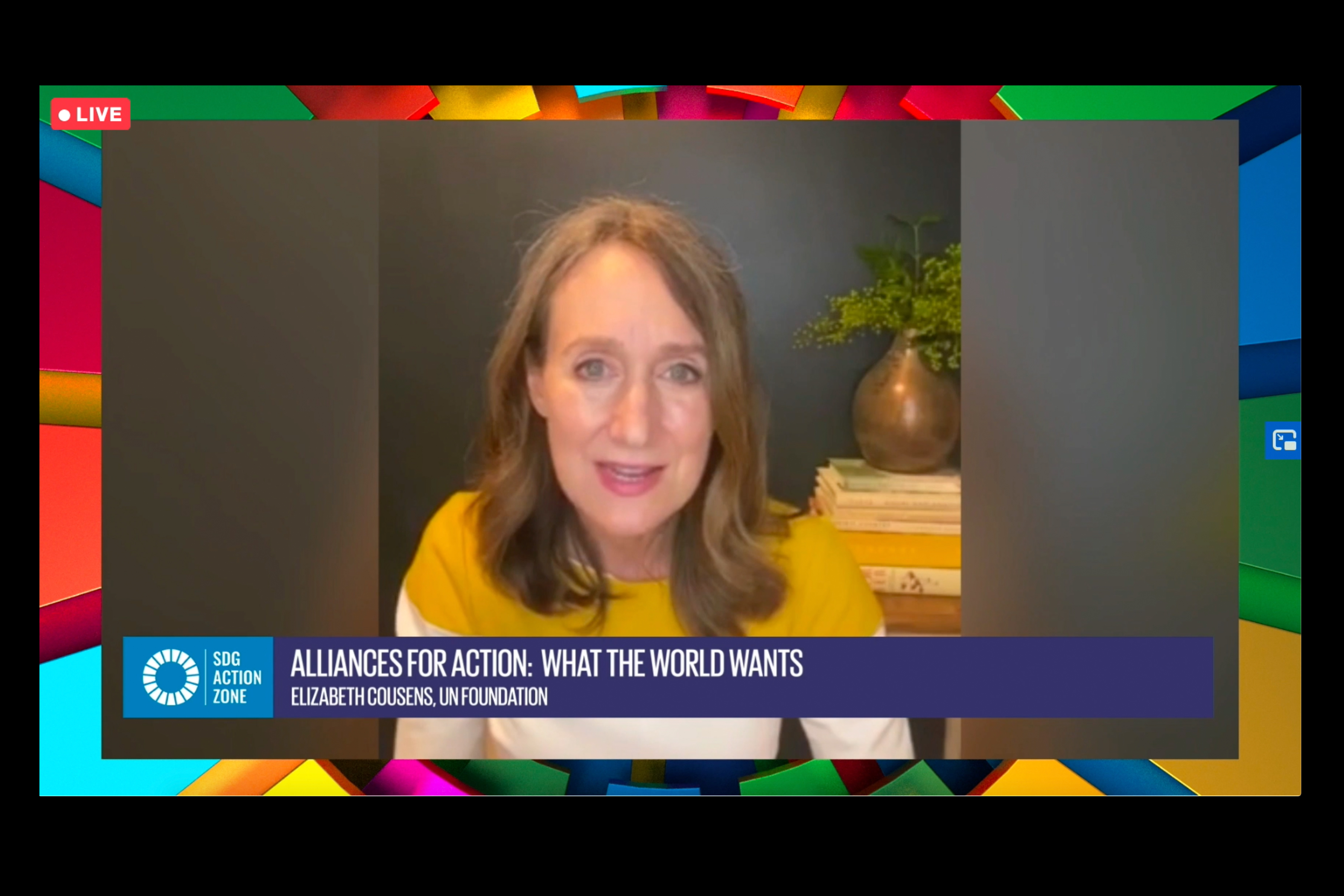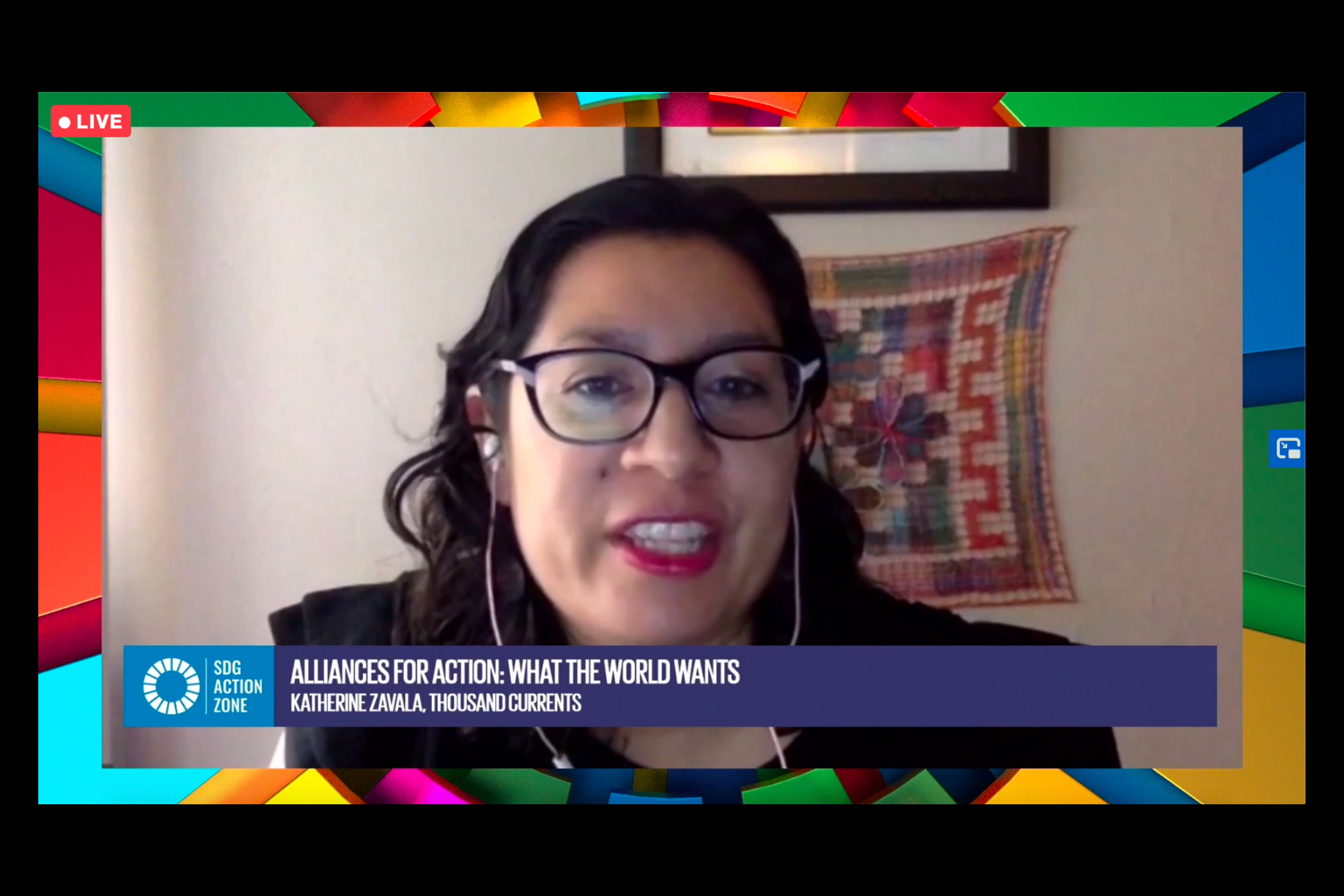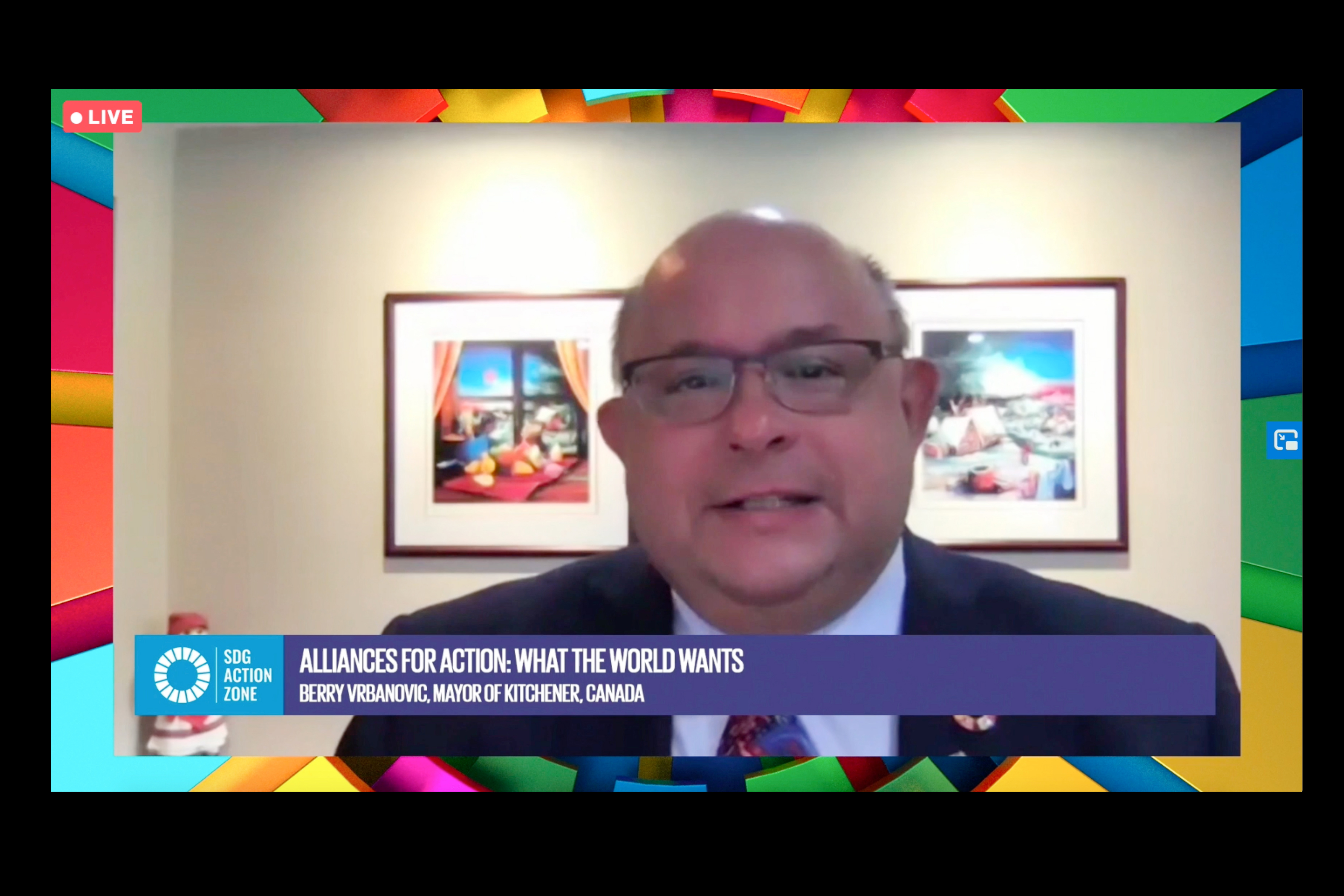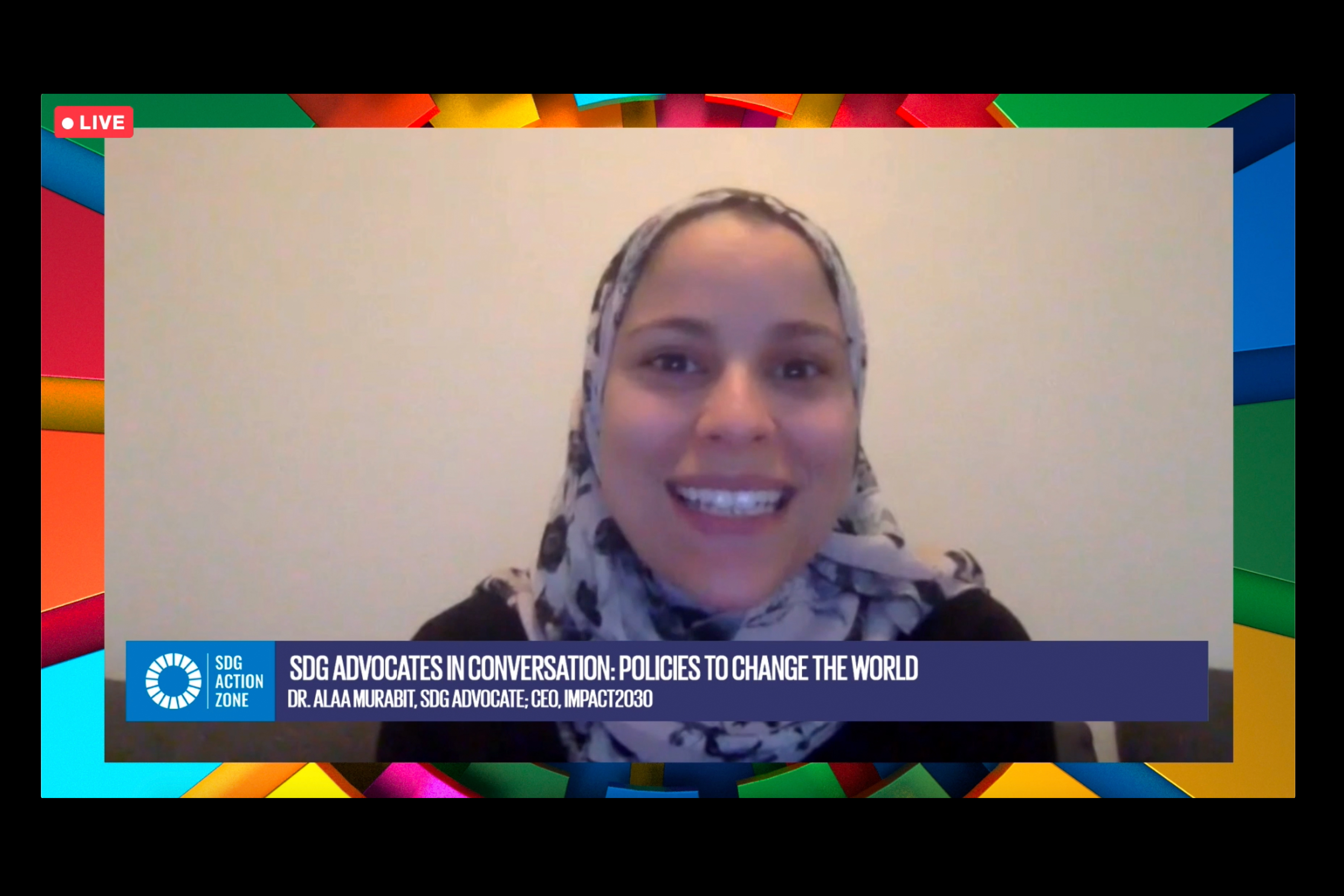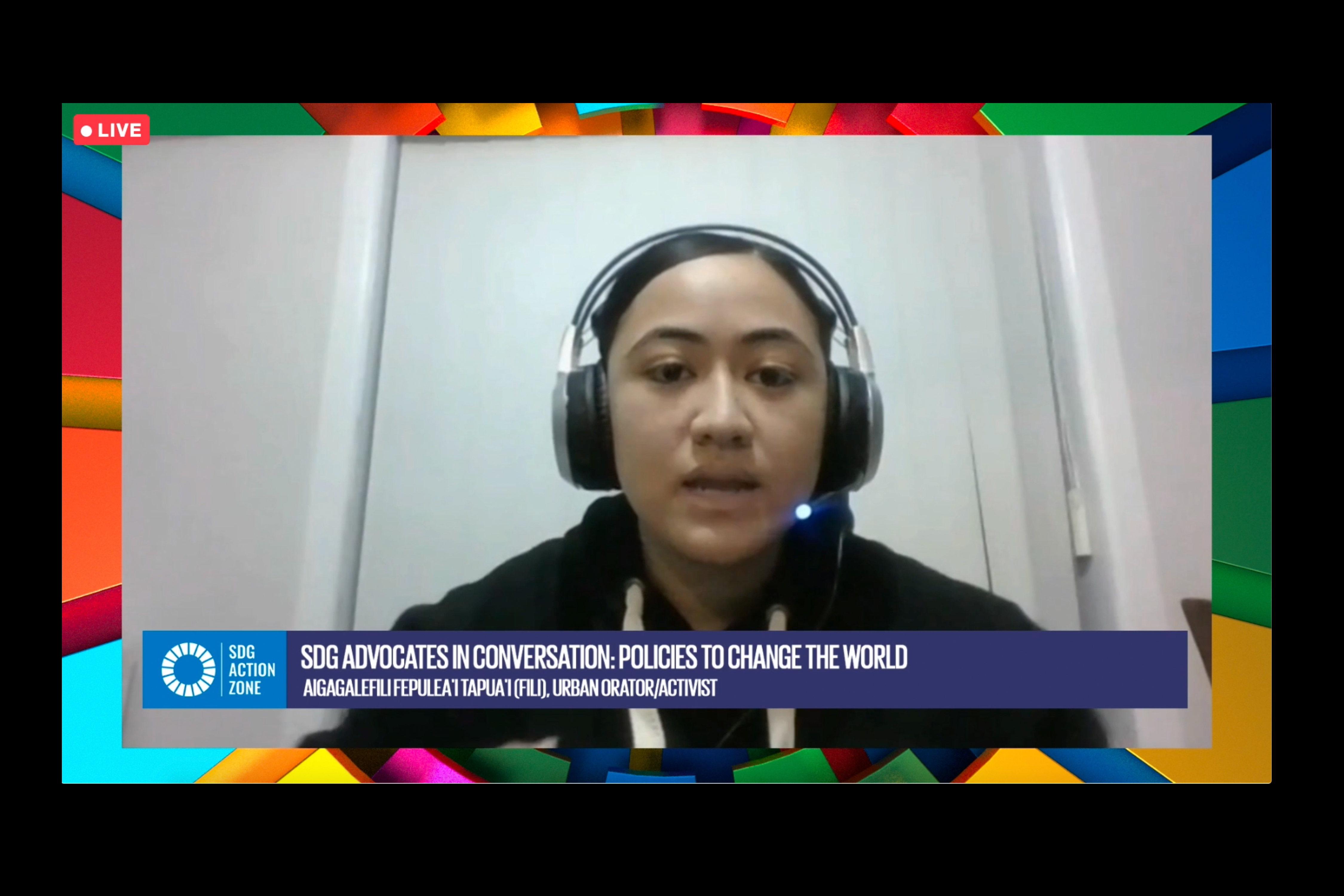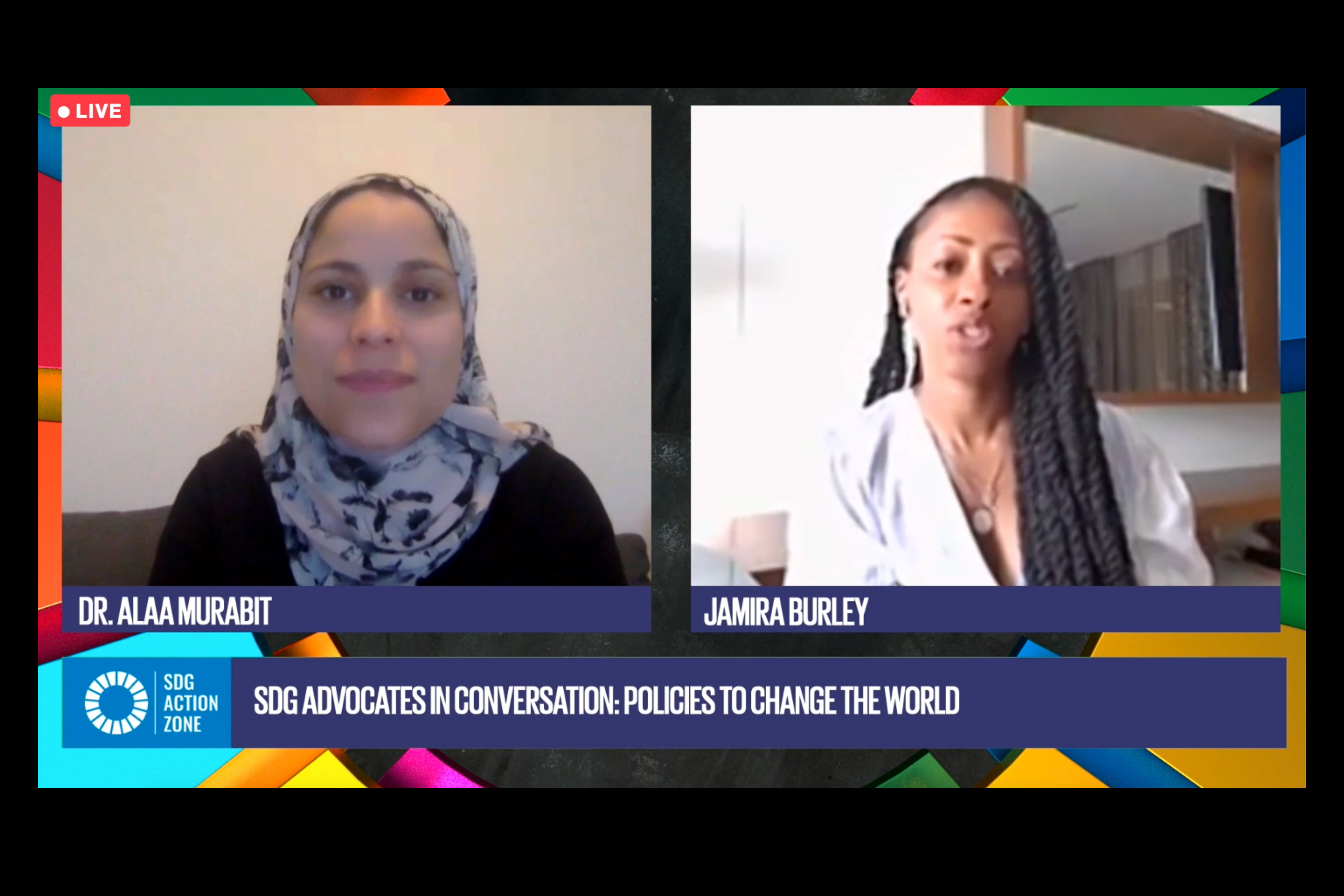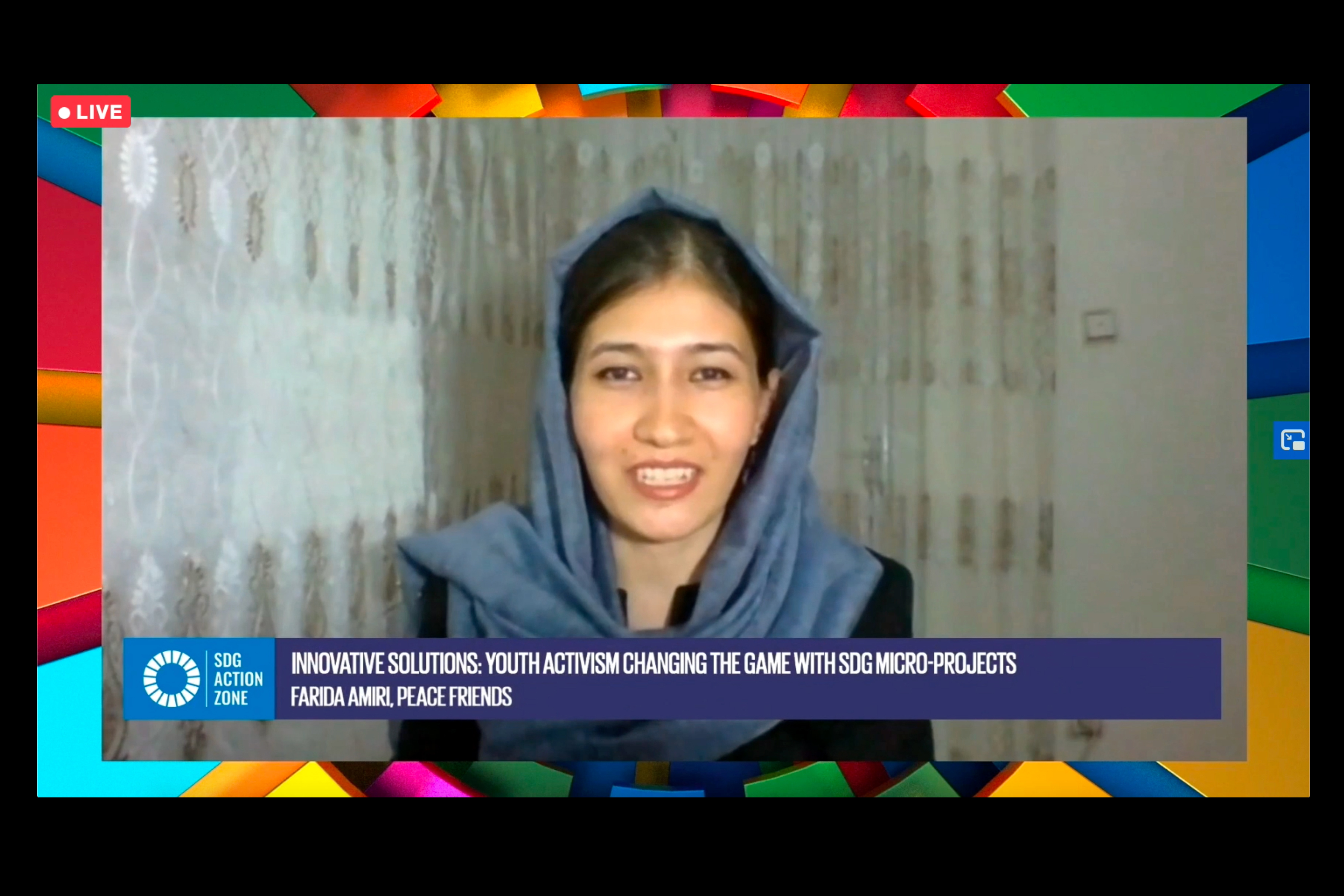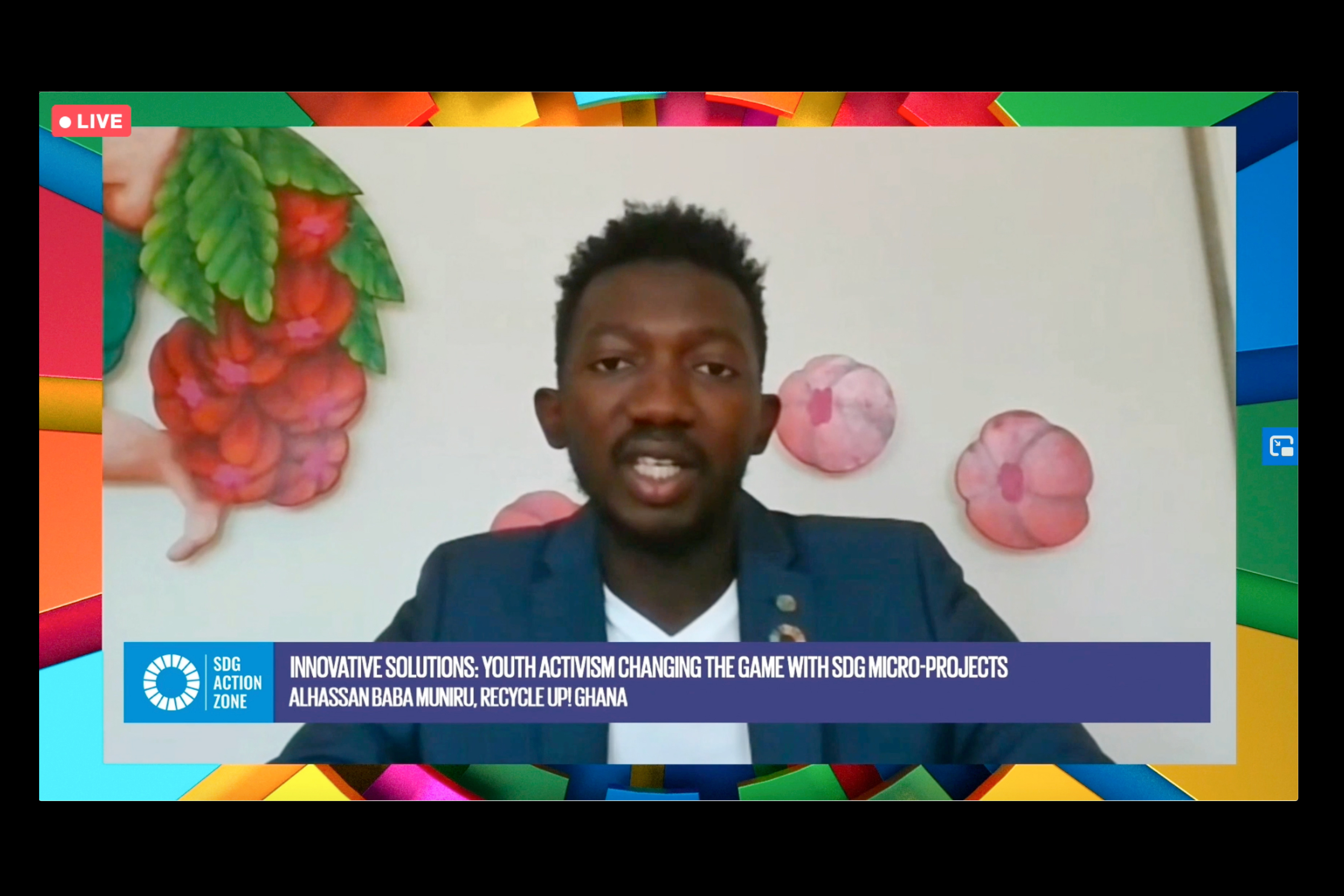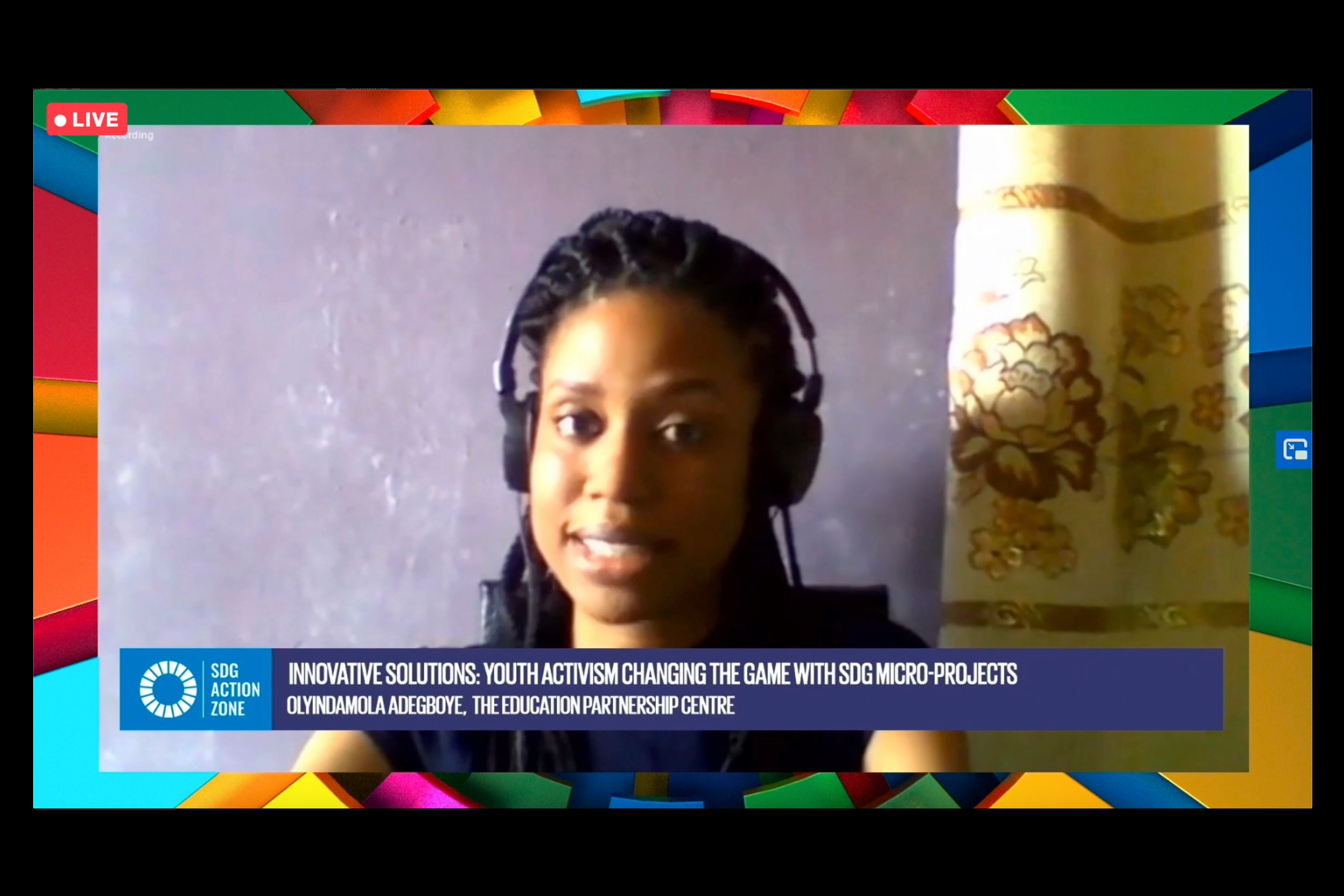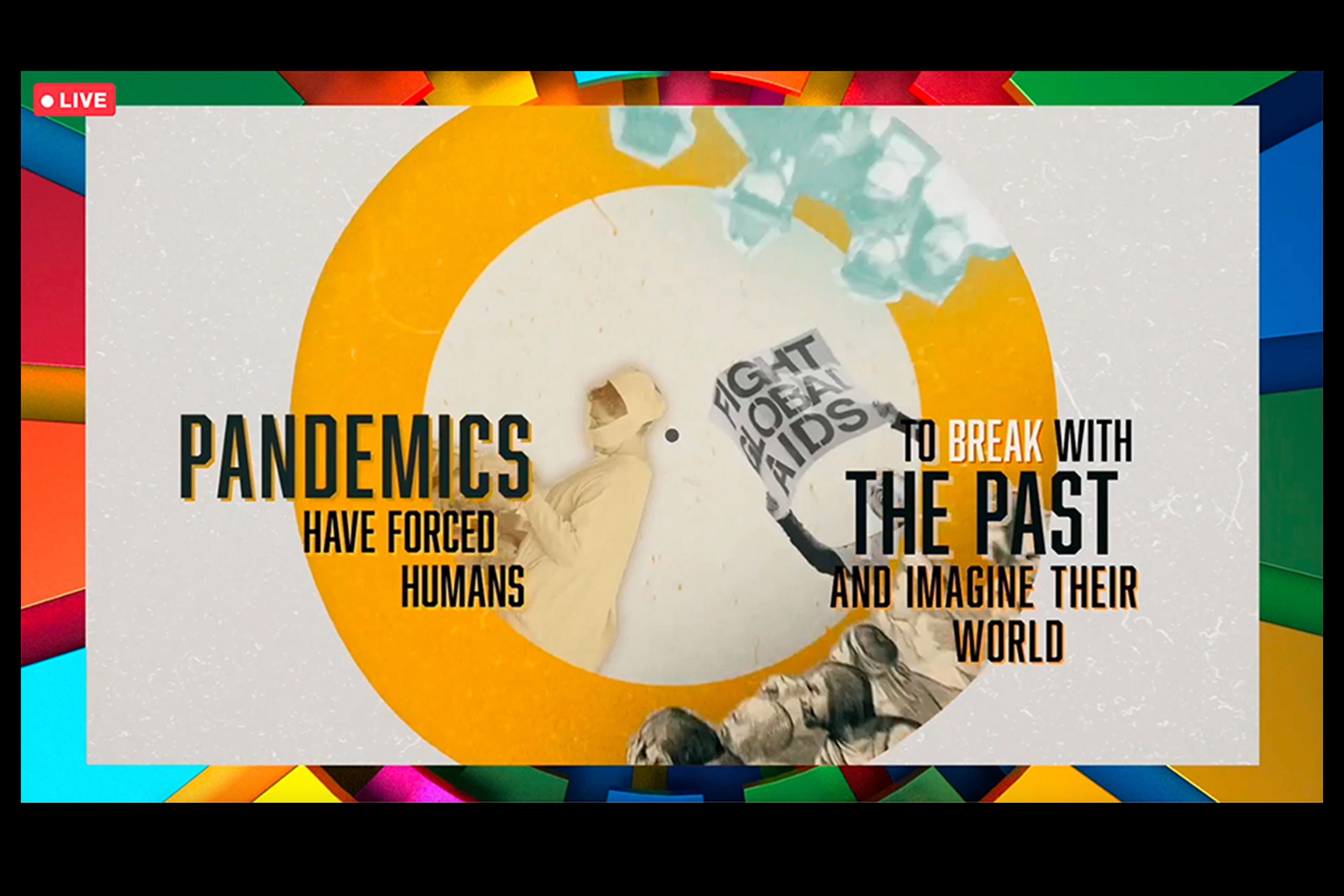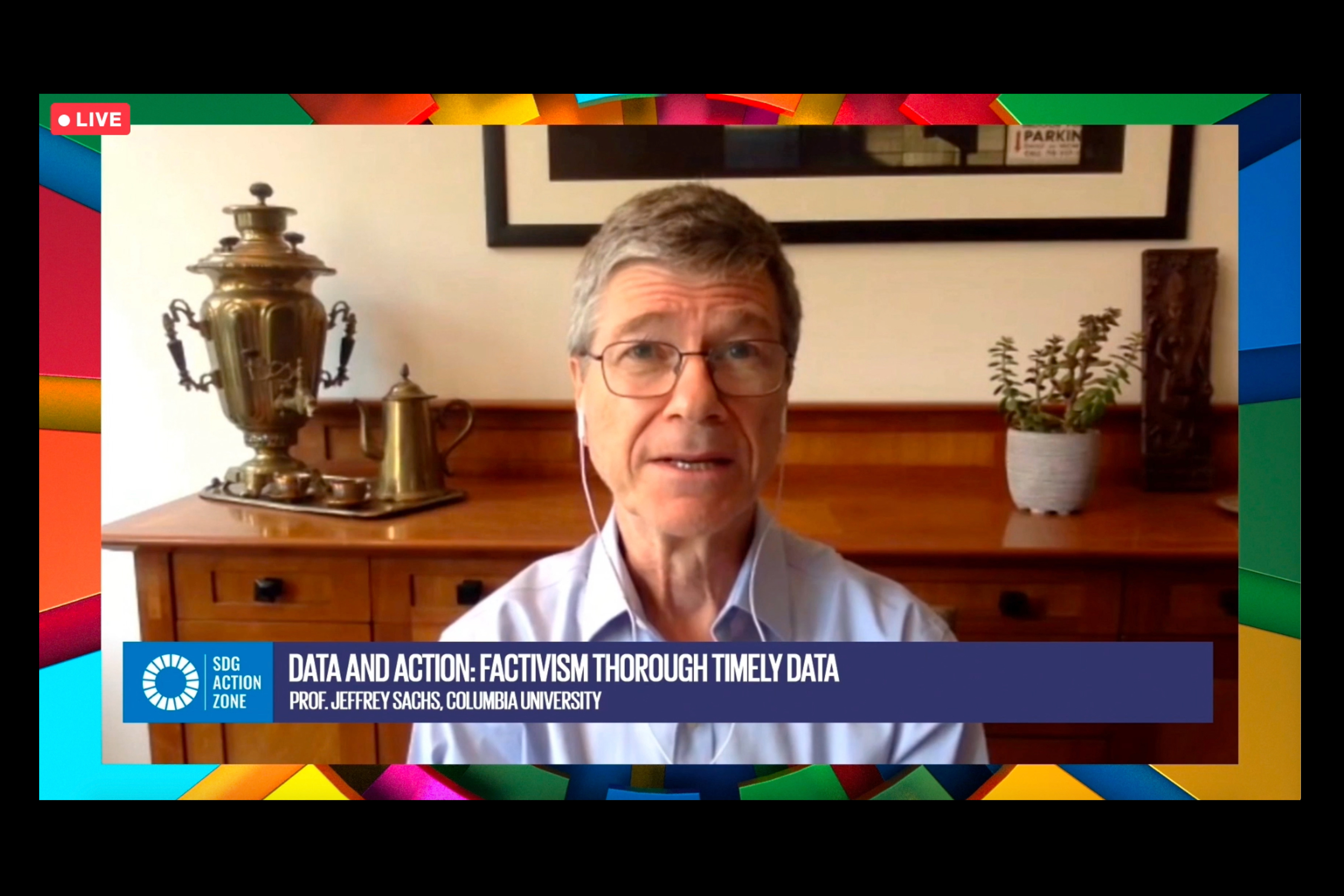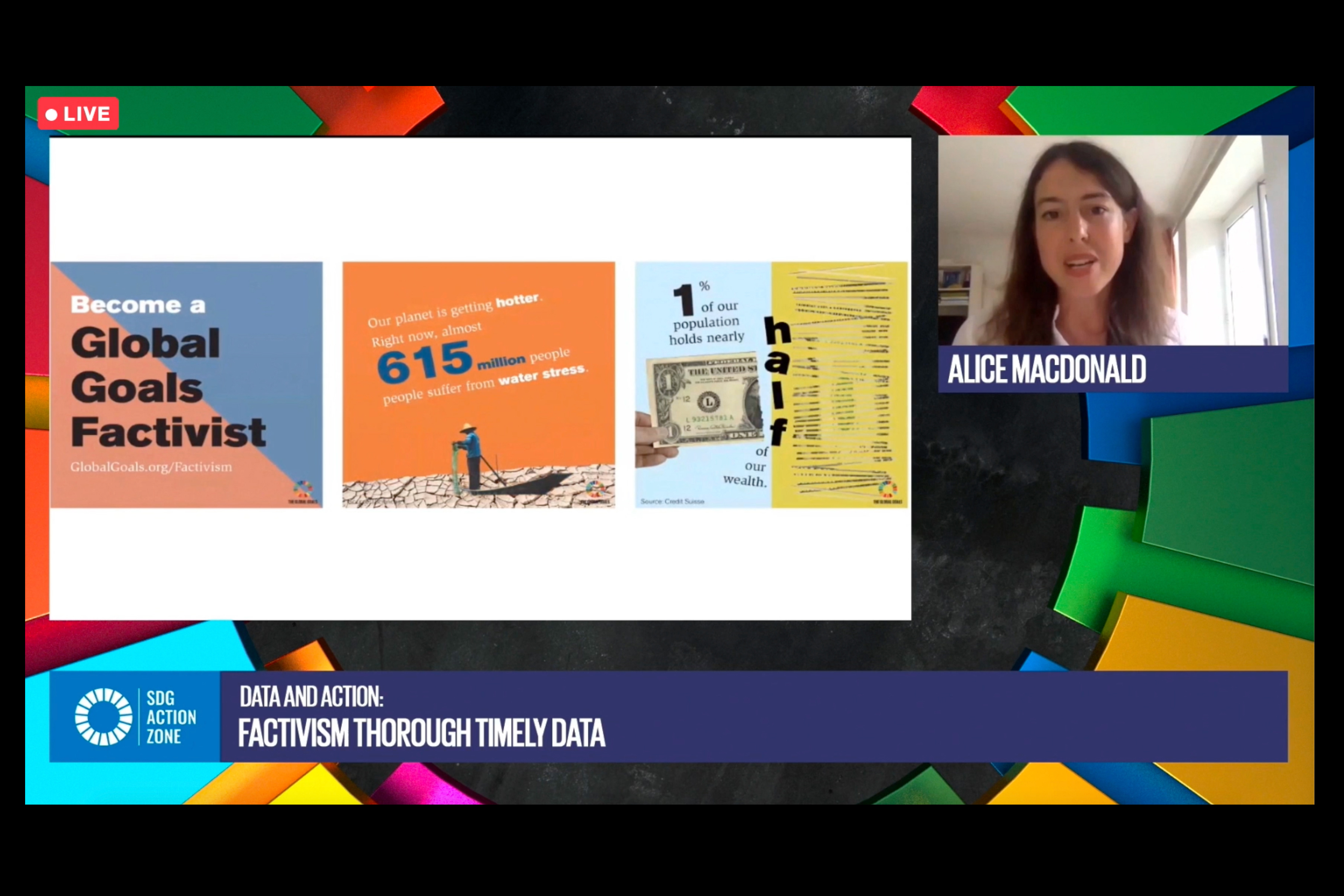SDG Action Zone: Partnerships
22-24 September 2020 | Virtual
Highlights for Thursday, 24 September 2020
During the third day of the SDG Action Zone, the focus was on partnerships, with participants examining what the world really wants, what policies are needed to turn unwise practices into robust, lasting actions, and where both data and young people might help catalyze healthy solutions for change.
Master of Ceremony Nadira Hira opened the third day’s session, declaring that the urgency, optimism and incredible stories of the previous days had inspired new and different partners through a unique virtual platform. She invited everyone to “smash the silos” and join hands to achieve the SDGs during the coming decade.
Plenary Session: Turning a Moment Into a Movement
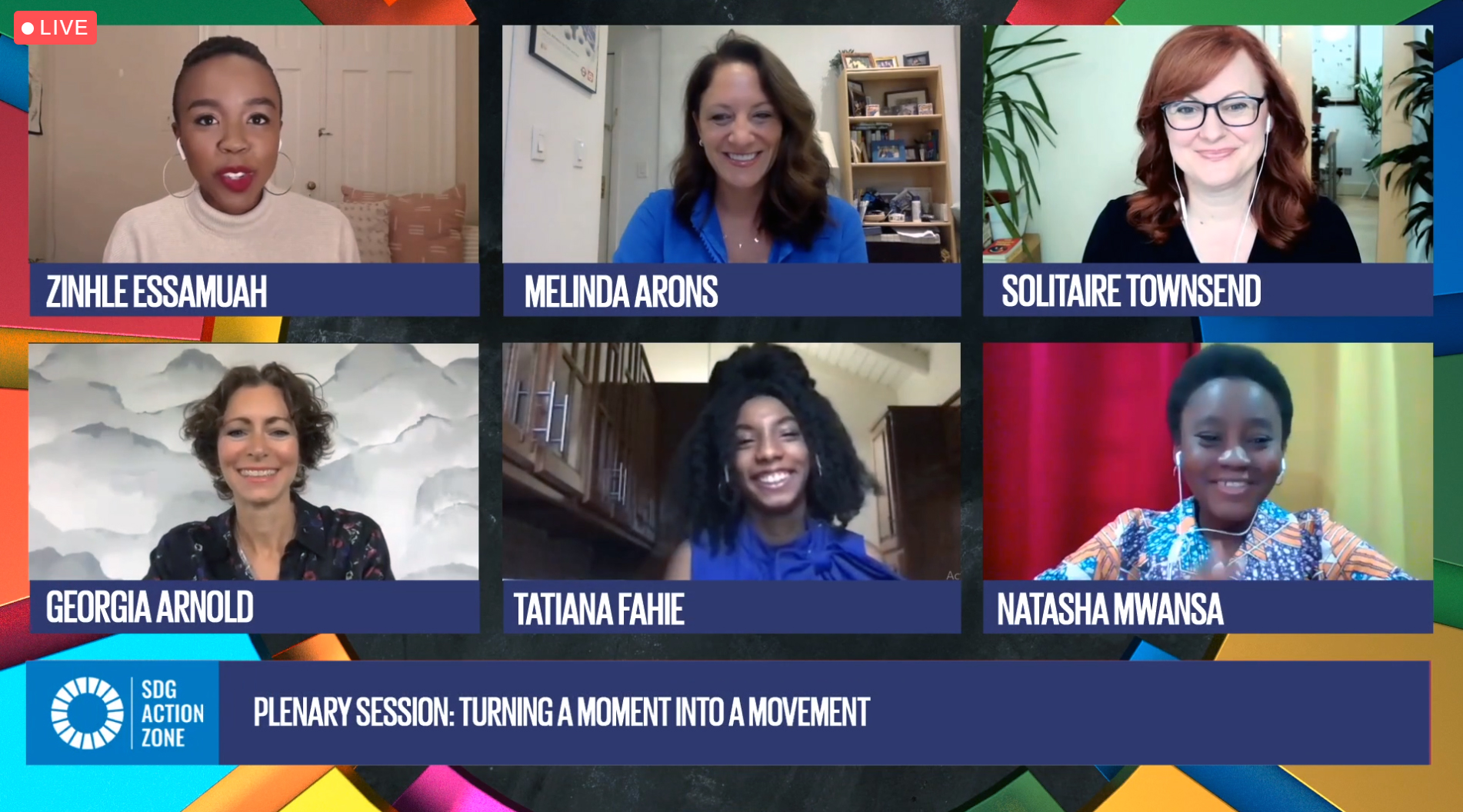
The session brought together leading storytellers and communicators to have a frank debate about what is needed to transform this moment of global upheaval into a movement to create the world we need. Key themes to emerge included how to turn the SDG Moment event into a movement, how to motivate and inspire audiences, and how to activate people.
Moderator Zinhle Essamuah, NowThis News, said the lingering question from the previous week’s SDG Moment was how to sustain the energy created by the SDG Moment and how to reach audiences through stories that generate action.
On the secret to moving audiences to take action, Georgia Arnold, Viacom, suggested harnessing the power of visibility and engaging audiences directly through their experiences, such as dealing with COVID-19 losses. Melinda Arons, Participant Media, said proximity and association with specific characters put them closer to the issues they represent. Speaking for young communicators, Natasha Mwansa, Journalist and Health Advocate, suggested intergenerational mentorship was the key to creating change and will help unlock the potential of young journalists. Solitaire Townsend, Futerra, urged telling the stories of heroes instead of villains, especially during global disasters. Tatiana Fahie, Girl Up, emphasized the need to connect and identify with characters on a screen or in the media.
On the importance of activating participants, Melinda Arons emphasized investing in impactful, real stories and partnering with the right media distributors, actors, and impact partners.
Participants also highlighted:
- finding the right audience for the right message;
- telling young people stories that resonate with their own experiences;
- breaking down barriers that prevent stories from being told, such as internet connectivity and access to media; and
- investing in education and technology to improve stories and messages.
Images from the Event
Videos from the Event
Alliances for Action: What the World Wants
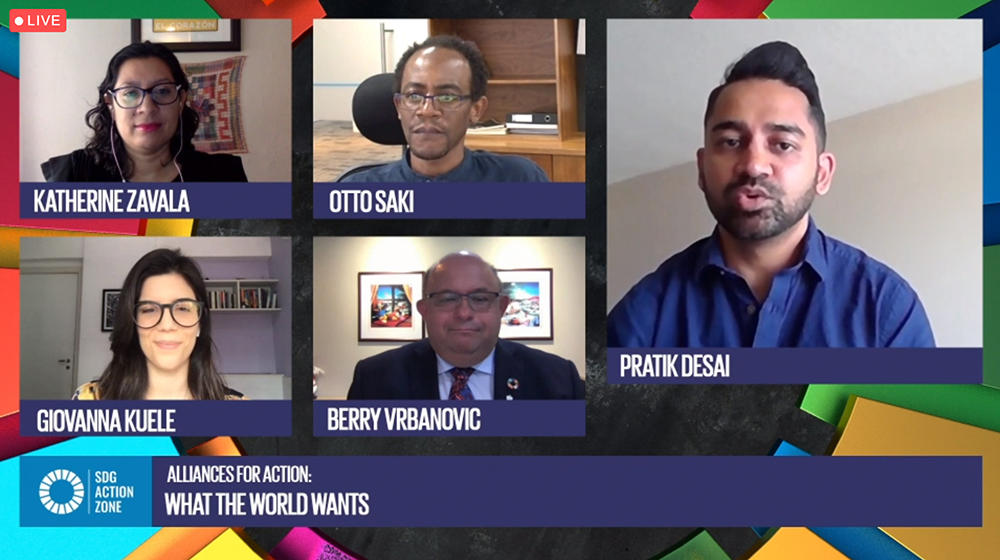
The aim of this session was to allow speakers from key constituencies to reflect on the new report, UN75: The Future We Want, the United Nations We Need, which came out of consultations and surveys involving more than one million people worldwide. Key themes to emerge during the session included the impact of the current global crises, the critical importance of multilateralism, and the roles of women and indigenous peoples.
On the current global crises, Elizabeth Cousens, UN Foundation, said our ability to solve the health and environmental emergencies will shape our future for decades to come. She concluded that the “clear and simple truth” from the consultations on the report is that “we are, in fact, united.” Moderator Pratik Desai, World Benchmarking Alliance, said that despite the enormous challenges we face, the world has never been better equipped to face them. He argued the SDGs show we all have the same desires, and said we should focus on identifying solutions that bring together unheard voices and stories.
Regarding indigenous people, Katherine Zavala, Thousand Currents, described the experiences of indigenous peoples’ upon hearing their own difficulties reflected in the new report, and the sense of solidarity it generated.
Regarding the report’s focus on women, participants noted this positive emphasis was in contrast with rising gender-based violence data during the COVID-19 lockdown periods. Participants also highlighted the role of the UN in upholding human rights, and the unique and essential role of the UN in keeping countries accountable.
On multilateralism, researcher Giovanna Kuele identified the strong appetite for global cooperation, while warning it is clear people want an inclusive multilateralism that engages more with youth, women and marginalized people. Berry Vrbanovic, United Cities and Local Government, said “international solidarity has become a beacon of security and guarding the unheard.”
Other important messages from the session included that:
- future generations will judge us based on our actions at this critical moment;
- the SDGs remain the most valid reference to frame development trajectories; and
- the only way to realize the SDGs is through co-creation with local and different spheres of government.
Images from the Event
Videos from the Event
SDG Advocates Session: Policies to Change the World

This session focused on the experiences and insights of several young women on the frontlines of activism around the world. Key themes to emerge included frustration at governments and corporate leadership, the vital role of activists, and community engagement.
On the role of government and corporate leaders, Jamira Burley, an activist and social impact strategist recognized by the Obama White House as a Champion of Change, advised that learning from the communities on the receiving end before implementing policies or business strategies is crucial. Aigagalefili Fepulea’i - Tapua’i, founder of 4 Tha Kulture, a New Zealand youth collective, said Pacific Islands are at the forefront of battles against climate change and biodiversity loss, yet corporate leaders do not engage with indigenous communities and ignore young voices. All the participants expressed frustration about the current narrative that is driven from a place of privilege and misunderstanding about the challenges faced by indigenous people, women, people of color and young people.
On the importance of activism, Jana Amin, a 17-year old Egyptian-American activist, described the moment she had realized that staying silent in moments of crisis makes one complicit in the problem. She said young people should always ask themselves, once they are on a platform and have a voice: “Are you directing the attention towards yourself or towards the community you represent?”
Regarding community engagement, Jamira Burley warned that approaching development in poorer countries and areas from a privileged western perspective can cause real harm unless one becomes immersed in the local community and can “walk in the shoes” of those who live there.
Panellists also recommended:
- genuinely listening to marginalized voices, women, and indigenous peoples;
- mainstreaming gender throughout all policies;
- implementing the SDGs to achieve climate justice; and
- taking into account indigenous communities’ traditional knowledge, which can contribute to climate solutions.
In other recommendations for achieving the SDGs Aigagalefili Fepulea’i - Tapua’i said the village mentality is everything and can have a “ripple effect.” Jana Amin stressed the importance of “actively asking yourself what impact your actions have on invisible communities across the world.” Session Moderator Alaa Murabit, CEO of IMPACT 2030, concluded that how you spend your money can have an impact, such as buying locally and from companies that do not harm the environment.
Images from the Event
Video from the Event
Innovative Solutions: Youth Activism – Changing the Game with SDG Micro-projects

During this session, moderator Julia Zimmerman, Ban Ki-moon Centre for Global Citizens, invited young graduates from the Centre to share their individual stories and projects. Two key themes to emerge during their presentations were scalability through partnerships, and the empowerment of women and girls.
In terms of scalability, Alhassan Baba Muniru, Recycle Up!, described his efforts to engage young people in recycling, based on the philosophy that local problems should be solved by local actors. He also stressed that waste and recycling is a challenge for all countries, meaning it lends itself to collaboration across borders and even across continents.
Oyindamola Adegboye, Education Partnership Centre, related the feeling among Nigerian young people of being overlooked by their government, and said many young people struggle to connect their individual realities with global problems such as climate change. Praising the global linkages created by the project, she said young people should be co-creating and co-designing policies and decisions that will affect their aspirations and futures.
On women’s empowerment, Farida Amiri, Peace Friends, described her efforts in Afghanistan to provide a platform for young women to be involved in peacebuilding efforts. She said the SDGs and peace processes need women to be empowered to participate meaningfully, and the narrative of women as victims must be changed. Latifa AlWazzan, MW6INY & wazzanMath, highlighted the critical importance of education. She explained that by showing female students that work generally associated with men can be rewarding and accessible to women, too, a door had now been opened that many in her country had previously regarded as closed. She emphasized the importance of collaborating and having partners in order to learn from others, and having CV-building workshops for girls. Belinda Isimbi Uwase, GLOW VOICE, expressed concern at the traditional norms placed on girls and the barrier this creates to realizing their potential, describing her initiative’s efforts to empower them.
Images from the Event
Videos from the Event
Data and Action: Factivism through Timely Data
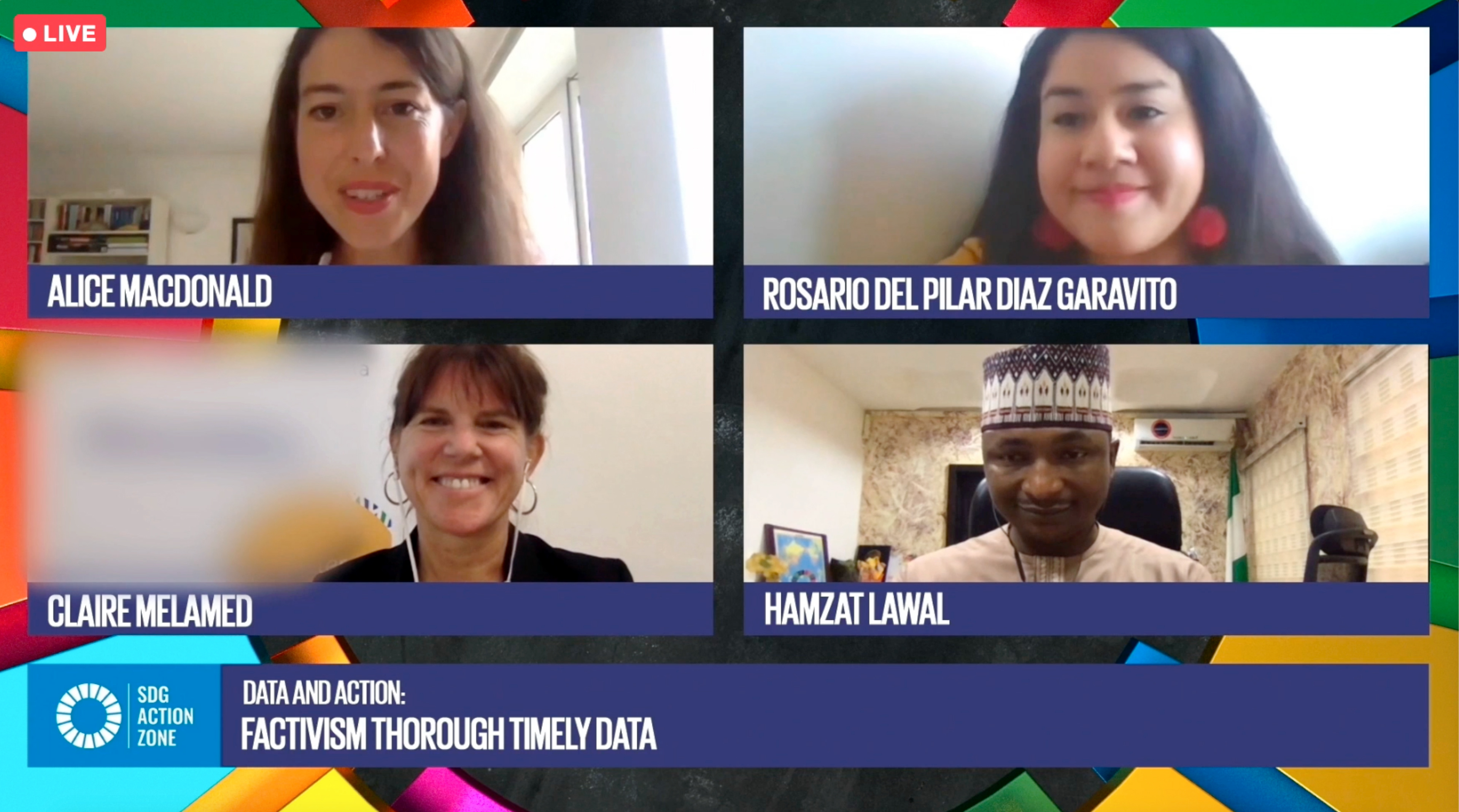
This session was hosted a day ahead of the Global Day of Factivism, which aims to show the state of the world and how the SDGs are the best framework to recover from the pandemic and build a better and more sustainable world for everyone, everywhere. The objective therefore was to shed light on the range of actions needed to make the 2030 Agenda a reality for all.
Jeffrey Sachs, Columbia University, provided introductory remarks on data tools to help SDG tracking and achievement. He stressed that progress has been made in data access, recalling that data used to be available only years after the fact, and be expensive and laborious to collect and process. He praised data as a critical decision-making tool whether a government is controlling a pandemic, stopping illegal fishing or forestry, or fighting fires, since it allows seeing what is happening on the planet and holding everyone accountable.
Moderator Alice Macdonald, Project Everyone, invited participants to share their views on the state of the world with regards to big data, how gaps can be filled by access to data, and how data can drive better policy and decision making.
On where we are with regards to the SDGs and where the gaps are, Claire Melamed, Global Partnership for Sustainable Development Data, said most decisions are based on data that is out of date. She lamented that COVID-19 has caused cancellation of censuses in many countries, thus creating even further delays in proper decision-making processes.
On Nigeria’s use of data, Hamzat Lawal, Connected Development, suggested that when citizens have proper and direct access to data, every cent spent by a government will be accounted for, thus arresting corrupt practices. Rosario Del Pilar Diaz Garavito, The Millennials Movement, said access to data can prevent future disasters, noting that countries that use data for SDG tracking are on an entirely different development trajectory.
On where the “real issues” are and describing good examples, Melamed noted unprecedented improvements due to integration and combining data, which has improved governments’ ability to track events and to “know what to do about them.” Garavito described the case of Latin America where data on young people’s demands for action has enabled governments to identify the gaps in understanding behavior. She shared Peru’s data-based approach, which enables registering a baby’s birth within an hour of being born.
On gaps that are filled by access to data, Garavito identified improved investment in science and research, understanding gaps in school curricula and where to invest, and creating a common language for how to interpret data.
On the differences between countries’ data sources and new technologies, Melamed said all governments are learning. She noted the common challenge is of a human and political rather than a technical nature, and stressed the need for governments to understand and prevent abuse of confidential data.
Wrapping up the session, participants explained how they understood the term factivism, saying it is: information united with action; about using tools to bring about change for the good of society; and a tool to uncover and solve problems.
Images from the Event
Video from the Event
SDG Action Zone Resources
IISD/ENB Meeting Coverage
- SDG Moment, 18 September 2020, Virtual
- 75th Anniversary of the UN, 21 September 2020, Virtual
- Biodiversity Summit, 30 September 2020, Virtual
- 2020 High-Level Political Forum on Sustainable Development (HLPF 2020), 7-16 July 2020
- Coverage of Selected Side Events at HLPF 2020, 7-16 July 2020
- UN Summits Week 2019, 23-27 September 2019, UN Headquarters, New York
- Coverage of Selected Side Events at the UN Summits Week 2019, 22-27 September 2019, New York
- ENB Coverage of SDGs Related Meetings
IISD Resources
- Subscription Page for IISD Reporting Services Peer-to-Peer Mailing Lists (including BIODIVERSITY-L,SDG, CLIMATE-L, FORESTS-L, OCEANS-L, and Regional Updates)
- SDG Knowledge Hub - An Online Resource Center for News and Commentary Regarding the Implementation of the United Nations’ 2030 Agenda for Sustainable Development, including all 17 Sustainable Development Goals (SDGs)
- Linkages Update - International Environment and Sustainable Development News

